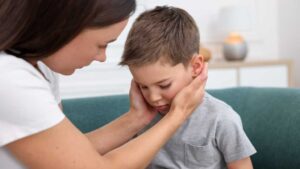Autism parents: ABA Centers of Florida did not decide to open a series of autism care clinics in the Sunshine State because it would be easy. We launched with the understanding of how difficult it can be for parents and caregivers of children diagnosed with Autism Spectrum Disorder (ASD) to navigate the system. We know how intimidating and nearly overwhelming it can be when dealing with behavioral health challenges, no matter where you live.
Redefining the “Best” State to Offer ASD Care
When you aim to help people, you can go where people are already getting the most assistance or where more people can use a hand. Just two months ago, the U.S. Census released a report in December of 2022 stating that Florida is the third most populous and fastest-growing state. The fact that Autism Parenting Magazine does not mention Florida in its April 2022 article entitled “Which States Are Most Supportive for Raising a Child with Autism?” can be looked at with both concern and optimism.
Florida did not make the top ten best states, per the article, but neither was it mentioned among the ten worst. Colorado is ranked as the “best” state (primarily due to stricter insurance mandates), but there are still flaws.
The question was never, “should we go to where autism care is the easiest?” The question became, “where can ABA therapy centers do the most good, and where can we make gains in improving the process for autism parents?”
Growth was absolutely a driving factor, and not just in residencies. World Population Review shows Florida with 4.88% ASD diagnosis, the highest estimated state-level prevalence. The choice becomes apparent when you consider how unlikely it is that most autism parents and caregivers will choose to move from Florida to Colorado.
The Best State for Recreation? Possibly
Besides the statistics and opinions, Florida objectively provides much of what autism parents need to help craft a comfortable childhood for their kids. It is impossible to overstate the importance of recreation, play, and imagination in the life of a child with ASD. There are only a few times during the year in Florida with no access to parks, museums, beaches, and much more.
Why is recreation significant? Because it’s all about experiences, which create enjoyment and greater satisfaction with life. Additionally, when children on the spectrum have fun and feel their best, they are less likely to exhibit problem behaviors. Decreases in challenging behavior improve familial participation and access to opportunities, increasing the likelihood of positive, shared experiences.
Recreation allows all children to express their creativity, create and achieve new goals, and master essential skills. For someone growing up with autism, recreation is also an opportunity to practice social skills and physical aptitude. Merely the promise of recreation can increase motivation, as even minor activities can improve self-confidence.
Being the third most populated state also means Florida is tremendously diversified. World Population Review notes that among numerous other agencies, ASD occurs in all racial, ethnic, and socioeconomic groups. And recreation is essential in promoting inclusion and quality of life. Recreation enables kids with autism to become involved and feel like they’re part of a community.
Here are just a few ways Florida stands out in both recreational opportunities and ASD awareness:
The Miami Children’s Museum – Sensory Friendly Saturdays
980 MacArthur Causeway
On the second Saturday of every month, children with ASD will find sensory-friendly experiences waiting for them, including a sensory-friendly stage performance and various sensory-based activities. The entire Museum setting has been modified with adjustments to the sound and lighting and with limited admission. Interested autism parents can register here or call (305) 373-5437 for more information.
Ocala Equine-Therapy
The result is not just about kids with autism learning skills specific to a particular activity or sport, such as horseback riding. Participation in the programs available in Ocala’s equestrian heartland helps improve general skills for environments such as school and work.
It’s not just about the progress of any one day or in any program; it’s about establishing a long-term desire to learn, make choices, and feel independent, all while connecting with a whole other species. Those are the benefits of equine therapy, and accommodations are available for ASD programs throughout the state. Click on the link and plug in Gainesville, West Palm Beach, or any other region, and you will see similar therapy programs available where you live or in the city where you are considering a move. And, because it’s Florida, those opportunities are available year-round.
Dinosaur World – Autism Friendly Initiative
5145 Harvey Tew Rd.
Plant City
ASD is four times more common among boys than among girls. And what boy doesn’t spend at least part of their childhood obsessing over dinosaurs? But that’s ok. Hobbies such as collecting dinosaur figures or books offer personal enjoyment, increased self-confidence (the more they learn), and often motivate kids on the spectrum.
Dinosaur World is part of the Autism Friendly initiative created by the Center for Autism and Related Disabilities (CARD) at the University of South Florida. Many exhibits are hands-on for exploration at whatever individual pace suits the guest. There’s very little waiting in lines to see the hundreds of life-sized dinos, dino-themed playgrounds, fossil digs, and more.
Picnics are encouraged so parents can bring dietary-appropriate meals and snacks, and service animals (including emotional support dogs and family pet dogs) are welcome. Visit the Dinosaur World website for more information about their Autism Friendly initiative.
The Crayola Experience – Sensory Sundays
The Florida Mall – Orlando
8001 South Orange Blossom Trail
Crayola Experience recently unveiled Sensory Sunday, a monthly opportunity to enjoy the attraction adapted just for sensory needs. One Sunday each month, they open at 9 AM so guests can enjoy fewer crowds and accommodations such as:
- No music
- Dimmed lights
- Exclusive character appearances in the Crayon Factory Theater
- Quiet room for taking breaks and much more
The indoor attraction has 27 hands-on activities, such as wrapping and naming a crayon, creating a personal coloring page, and melting crayons to create souvenirs. There’s even a two-story Crayon-inspired playground. The full Sensory Sunday schedule is available on the Crayola Experience calendar.
We Rock the Spectrum Kid’s Gym
8 Florida locations
We Rock the Spectrum Kid’s Gym promotes Play With A Purpose™, where exercising and stimulating any of the seven senses through positive physical, emotional, and social development is the goal. They have community meetings for autism parents, parents’ night out events (where you catch a break knowing the kiddos are safe), birthday parties, private play dates, and more. For more information, click here to find the location nearest you.
What About the Theme Parks?
Of course, we must talk about theme parks! All Orlando theme attractions (Walt Disney World, Universal Orlando, SeaWorld Orlando) have resources and accommodations for guests with autism and other sensory processing needs. SeaWorld Orlando and its waterpark, Aquatica, are Certified Autism Centers.
No matter what day or time of year, you can relax knowing that your family will have the resources needed for the most sensory-friendly theme park vacation possible, including:
- Ride access programs for guests uncomfortable with waiting in attraction queues
- Guides to help you prepare for your family’s visit
- Quite spaces for taking breaks
Programs vary from park to park, but you can visit the accessibility options on the Walt Disney Resort, Universal Orlando Resort, and SeaWorld Orlando websites for a complete set of options.
And over to the west, in Tampa, Busch Gardens Amusement Park also has in-park services for guests with special needs. Bush Gardens offers a Ride Accessibility Program (RAP), which matches the individual abilities of their guests to the requirements of each of their rides. When enrolled in the RAP, ASD guests can participate in their Special Access Program, assisting with attraction enjoyment throughout the park as some queue lines are less accessible than others. For more information on the Busch Gardens accommodations, call (813) 844-4386.
Enjoy State-Supported Resources
Florida does promote several autism support programs, and residents or prospective transplants with ASD-diagnosed family members should also visit the Autism Society of Florida for more helpful resources.
Individual activities such as track, hiking, cycling, or cross-country all help individuals with autism to participate in recreation without the social interactions that might cause stress. But the fact is that sports and exercise programs can improve physical and mental health, and several communities have autism-specific sports teams to help cater to your child’s needs. Visit the American Special Hockey Association or the Miracle League for examples.
ABA Centers is Proud of Our Florida Roots
ABA Centers of Florida recognizes the importance of community, recreation, and living in a state that values autism families and children directly impacted by ASD. In addition to providing therapy solutions, we are activists within our communities, looking for ways to ensure autism parents and caregivers are seen and supported. For more information about ABA therapy and how we can assist with your autism journey, contact us at (877) 999-0258 or click here to request a free consultation.








